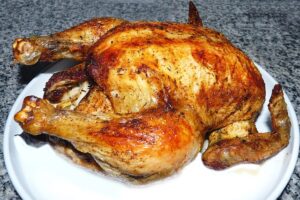Introduction
When following an intermittent fasting (IF) eating pattern, it is important to consider the number of calories consumed during the eating window. While the primary focus of intermittent fasting is on when to eat, the quantity and quality of calories still play a crucial role in overall health and weight management. In this article, we will explore how many calories you should eat while practicing intermittent fasting to achieve your health and fitness goals.
Caloric Needs and Intermittent Fasting
The number of calories an individual should consume while intermittent fasting depends on various factors such as age, gender, weight, height, activity level, and specific goals. It is essential to calculate your daily caloric needs before determining the appropriate calorie intake during your eating window.
To estimate your caloric needs, you can use the Harris-Benedict equation, which takes into account your Basal Metabolic Rate (BMR) and activity level. Once you have calculated your daily caloric needs, you can adjust the calorie intake based on your goals, whether it is weight loss, maintenance, or muscle gain.
Weight Loss and Caloric Deficit
If your goal is weight loss, creating a caloric deficit is crucial. A caloric deficit means consuming fewer calories than your body needs to maintain its current weight. It is generally recommended to create a moderate caloric deficit of around 500-1000 calories per day to achieve healthy and sustainable weight loss.
When practicing intermittent fasting for weight loss, it is important to focus on nutrient-dense foods that provide essential vitamins, minerals, and macronutrients while keeping the calorie intake in check. This can be achieved by incorporating plenty of fruits, vegetables, lean proteins, whole grains, and healthy fats into your meals during the eating window.
Weight Maintenance and Caloric Balance
If your goal is weight maintenance, you should aim to consume the same number of calories as your body needs to maintain its current weight. This is known as caloric balance. It is important to be mindful of portion sizes and the quality of foods consumed during the eating window to ensure you are meeting your nutritional needs while maintaining weight.
While intermittent fasting can be a helpful tool for weight maintenance, it is still important to prioritize a balanced and varied diet that includes all essential nutrients. This will support overall health and well-being, even if weight maintenance is the primary goal.
Muscle Gain and Caloric Surplus
If your goal is to build muscle, you may need to consume a caloric surplus. A caloric surplus means consuming more calories than your body needs to maintain its current weight. This provides the extra energy required for muscle growth and repair.
When practicing intermittent fasting for muscle gain, it is important to focus on consuming an adequate amount of protein to support muscle synthesis. Aim for around 1.6-2.2 grams of protein per kilogram of body weight per day. Additionally, include complex carbohydrates and healthy fats to provide the necessary energy for workouts and muscle recovery.
Conclusion
The number of calories you should eat while intermittent fasting depends on your specific goals, such as weight loss, maintenance, or muscle gain. Calculating your daily caloric needs and adjusting your intake accordingly is essential. Whether you are aiming to lose weight, maintain weight, or build muscle, it is important to prioritize nutrient-dense foods and maintain a balanced diet to support overall health and well-being.
References
– Mayo Clinic: mayoclinic.org
– National Institute on Aging: nia.nih.gov
– Harvard Health Publishing: health.harvard.edu












